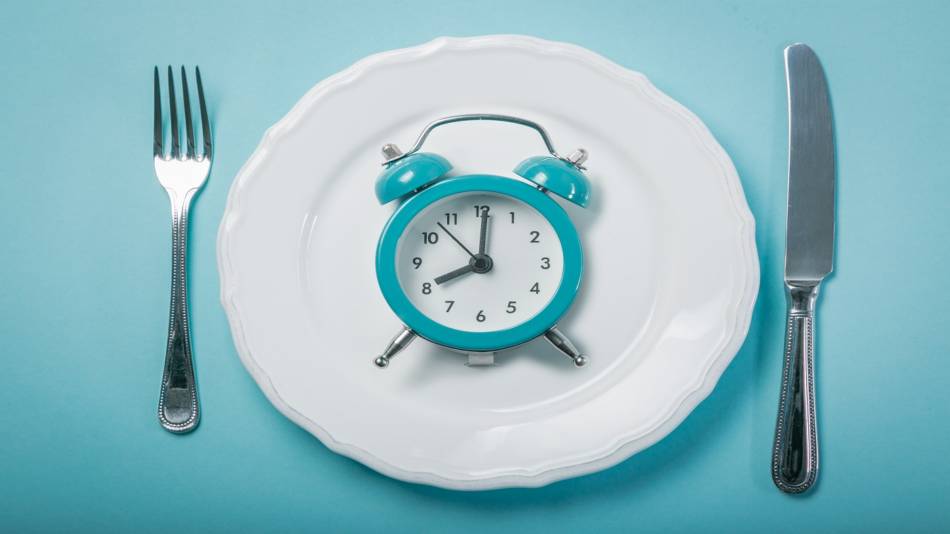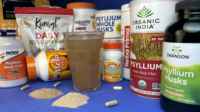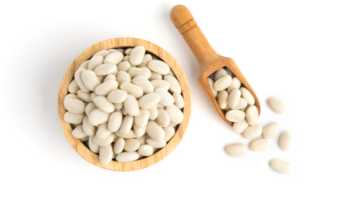Our Members Asked:
Are there supplements I should take, or take differently, when intermittent fasting?

Answer:
When you intermittent fast (i.e., restrict your time window for eating to 8 hours or less per day), it may be helpful to rethink the supplements that you take and when you take them.
Maintain protein intake and physical activity when intermittent fasting
Studies show that people who intermittent fast tend to lose lean mass (i.e., muscle). A 12-week clinical study found that participants who ate only between noon and 8 pm lost an average of 1.7 kg of weight, but most of this (1.5 kg) was lean mass. Typically during weight loss, only 20-30% of total weight lost is lean mass. Interestingly, the loss in lean mass in the study was statistically significant, while the weight loss was not compared to people in a control group who ate three meals a day and were permitted to snack between meals (Lowe, JAMA Internal Medicine 2020).
Why did the intermittent fasting group lose lean mass? One possible explanation was the finding that the people who fasted also significantly reduced their daily movement and step counts compared to the control group, and exercise is needed to maintain muscle. Another possible explanation is that the intermittent fasters reduced their intake of protein (the main component of muscle), although protein intake was not measured in this study. However, a study among athletes found that loss of lean mass can be avoided when adequate protein intake is maintained during intermittent fasting (Moro, J Trans Med 2016).
To help maintain muscle when intermittent fasting, make sure that you do not decrease physical activity or your daily intake of protein. If you think you need to supplement with protein, see ConsumerLab's Top Picks among protein supplements and protein bars. So as not to break the fast, protein should be consumed during the eating window — protein will stimulate insulin secretion, and it has just many calories per gram as a carbohydrate.
For most supplements, take them when you eat
It's okay to swallow regular vitamin pills and capsules while fasting, as they are unlikely to affect insulin levels, but vitamins and supplements sold as gummies, liquids, or chewable tablets are typically sweetened and can stimulate an insulin response, so, if you use these, take them during your eating window.
Keep in mind, however, that if you supplement with vitamin D or other fat-soluble vitamin (i.e., vitamin A, vitamin E, or vitamin K) or other fat-soluble ingredient (such as CoQ10 and even CBD), you will absorb considerably more if taken with a meal that contains fats or oils — preferably with your largest meal of the day. So don't take these vitamins or other fat-soluble ingredients during your fasting period.
Many minerals can upset your stomach if taken on an empty stomach, such as such as iron, zinc, and potassium. However, if your meal is heavy on beans or other legumes, be aware that natural phytates in these foods can bind to these minerals and reduce their absorption if consumed around the same time — so take mineral supplements at least two hours apart from such foods if you want to maximize absorption. (Caution: Supplements containing green tea extract should never be taken on an empty stomach, as this has been associated with liver toxicity, and it probably won't aid weight loss anyhow).
See our article, "Which supplements should be taken with food" for more information about supplements that should not be taken on an empty stomach.
To avoid constipation
Constipation is a common complaint among intermittent fasters, probably due to reduced gastrointestinal stimulation and activity during the fasting period. It is important to remain well-hydrated, preferably with water.
During your eating window, it important to eat whole foods that provide fiber, such as fruits, vegetables, and legumes. You can also consider adding extra fiber to your diet with a supplement such as psyllium. Coffee (black, when fasting) can also stimulate gut activity.
If you supplement with magnesium (since many people do not get quite enough from their diets), certain forms have a laxative effect and may be helpful. These can be taken during fasting or eating -- although if it causes diarrhea, taking it with food may reduce this effect. (For more about magnesium, see ConsumerLab's Magnesium Supplements Review, which includes information about choosing the right form of magnesium and our Top Picks among magnesium supplements.)
Join today to unlock all member benefits including full access to all CL Answers and over 1,400 reviews.
Join NowAlready a member? Sign In Here.
Join now at www.consumerlab.com/join/
















Submit your comment
This feature is restricted to active members.
Join now to add comments and get all member benefits, including over 1,400 reviews.
Join NowAlready a member? Sign in here.